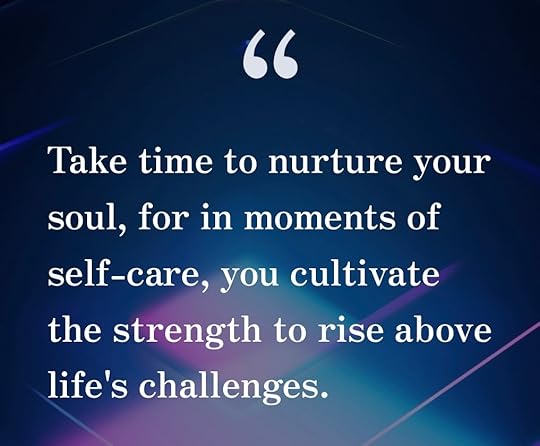Self-Compassion: Overcoming Negative Self-Talk and Building Resilience

Have you ever struggled with constant ridiculing thoughts that re-played continuously in your mind? Do you focus a great deal of energy on beating yourself up for past mistakes? Have you ever been told, “You’re your own worst enemy?”
If you answered “yes” to any of those questions, then this article is for you.
What is self-compassion?Self-compassion involves treating oneself with kindness, understanding, and care. Consider three components. 1) Self-kindness means being warm towards ourselves rather than harshly self-critical; 2) Understanding we are part of a common humanity where we can recognize suffering and personal inadequacy are part of the shared human experience, which leads to less feelings of isolation; and 3) Using mindfulness in the context of balancing painful thoughts and feelings with awareness rather than over-identifying with them.
We don’t naturally have self-compassion…but why?Here are a few reasons…
Our culture and society as a whole emphasize self-criticism and perfectionism, often viewing them as paths to success. The constant striving for reaching goals with unrelenting drive is not necessarily a bad thing, but this kind of pursuit can negatively impact our mental wellbeing without a healthy dose of self-compassion, by causing a loop of anxiety. The absence of self-compassion can make depressive symptoms worse, and in some cases, trigger depressive episodes.
We have to learn how to balance striving for excellence, while also giving ourselves a break. Because our culture doesn’t predominately focus on these things, it’s important to take a step back and self-reflect on the things we tell ourselves. I call this monitoring my self-talk. I intentionally pay attention to the things I tell myself, this way I can self-correct.
Another reason why we aren’t naturally self-compassionate creatures is because some people believe self-compassion means being lazy or indulgent. This manifests its way into the belief that being hard on ourselves keeps us motivated and disciplined.
I would argue that learning to practice self-compassion actually is more motivating. For example, learning to be kind to ourselves when we hesitate to get out of the gates and attempt to accomplish a goal, allows us to address the reasons why we might be slow to the start. But if we’re constantly stuck in a negative feedback loop, it will cause us to freeze and be further away from reaching our goals or achieving our dreams.
Past experiences can also undermine our ability to practice self-compassion. If you’ve grown up in a household where you were criticized frequently, it can play a significant factor in the things you tell yourself. Negative feedback and traumatic experiences condition us to internalize these external criticisms and without realizing it, our inner voice takes on a similar role. Traumatic experiences also take a huge dent out of our self-esteem and this often leads to a feeling of being unworthy of kindness and compassion.
The vast majority of my life I’ve been super hard on myself. My mother always told me I was a “perfectionist,” but for some reason I didn’t embrace that label. Then, finally one day I realized that perhaps she was right. It seemed like if I wasn’t actively pursuing some dream or goal, I wasn’t very nice to myself.
Looking back, I’d say this self-critical voice made many of my depressive episodes far worse. I had an aha moment when I was reading a book about negative self-talk playing a role in either triggering depressive symptoms or making a depressive episode worse. In that moment, I realized I needed to do something to change.
I ask myself, “Would you ever talk to a friend the way you are speaking to yourself?” My answer was a resounding, “No way!” I had the innate qualities of being kind to others, so I figured I could learn how to be kinder to myself. I would note, however, that I am a work in progress. Not perfect…but improving everyday. 
 What are some ways to practice self-compassion?
What are some ways to practice self-compassion?The first step to combat anything is to become aware of what you are doing and then take some steps toward learning how to practice self-compassion.
Here are three practical ways you can practice self-compassion:
Focus on Self-Kindness
I can’t emphasize enough how important it is to replace self-critical thoughts with encouraging and kind affirmations. I make a point to pay attention to my thoughts and without judging myself, I recognize the opportunity to change my thinking.
A simple practice can involve writing down three-five positive affirmations and repeating them out loud. For example, “I am strong. I am smart. I am capable.” Taking notice of whatever words, you put after “I am..” can help you retrain what can be somewhat of an automatic response of a self-critical voice.
Think of a way you’d show kindness to a friend. Do something nice for yourself. Something that makes you feel good. And take a moment to savor how that felt to take time out of your schedule and focus on you.
Journaling
I’m a writer, so obviously I believe in journaling. You don’t have to journal every single day for it to be a valuable tool. One thing you can do is write a compassionate letter to yourself. If you write that letter as if you were writing a compassionate letter to a friend, it can really be powerful.
It’s also helpful to record some of the reoccurring self-critical thoughts. By putting them on paper you can get to know them better. You can also have one column of a paper with a self-critical thought and the other side with information that refutes that negativity.
Journaling can also be used to write those positive affirmation statements. I’ve found a great deal of value going back and re-reading the statements I wrote.
Keeping a gratitude journal is also valuable. Noting the things, you’re grateful for shifts your mind from all the troubling things going on and focuses on positive things. When you change your thinking, you change your mood. Researchers have shown that people who write about gratitude are more optimistic and feel better about their lives in general.
Mindfulness
I’m a big proponent of mindfulness. It’s a big category, but I tend to focus on three main strategies: staying in the present moment, meditation and breathing.
I’ve experienced the value of learning to stay in the present moment, as a way to shift away from anxiety ridden, worrying thoughts, to being fully present. It’s more than simply telling you to, “stay in the present moment.” There are guided meditations you can do that will teach you how to ground yourself in the moment.
There are also many free guided meditations for self-compassion on YouTube. Here’s one I found helpful. Guided Meditation for Self-Compassion
Once you being implementing some of these tools, you will begin to see that you can learn to become more self-compassionate.
Other ResourcesHere are some additional resources to help you build self-compassion:
Books: Self-Compassion: The Proven Power of Being Kind to Yourself by Dr. Kristin Neff; The Mindful Path to Self-Compassion by Christopher Gerber.
Online Course: Mindful Self-Compassion: An 8-week training program offered by the Center for Mindful Self-Compassion.
Websites: Self-Compassion by Dr. Kristen Neff: Self-compassion website by Dr. Kristen Neff.
Podcasts: The Self-Compassion Podcast by Kristin Neff and Chris Gerber; 10% Happier with Dan Harris.
Final ThoughtsI can tell you I personally don’t have it all figured out. I continually work toward practicing self-compassion. It takes effort, but it’s totally worth the peace of mind I have come to embrace and love. Beinging kinder to myself has opened my eyes to the power of self-compassion.



